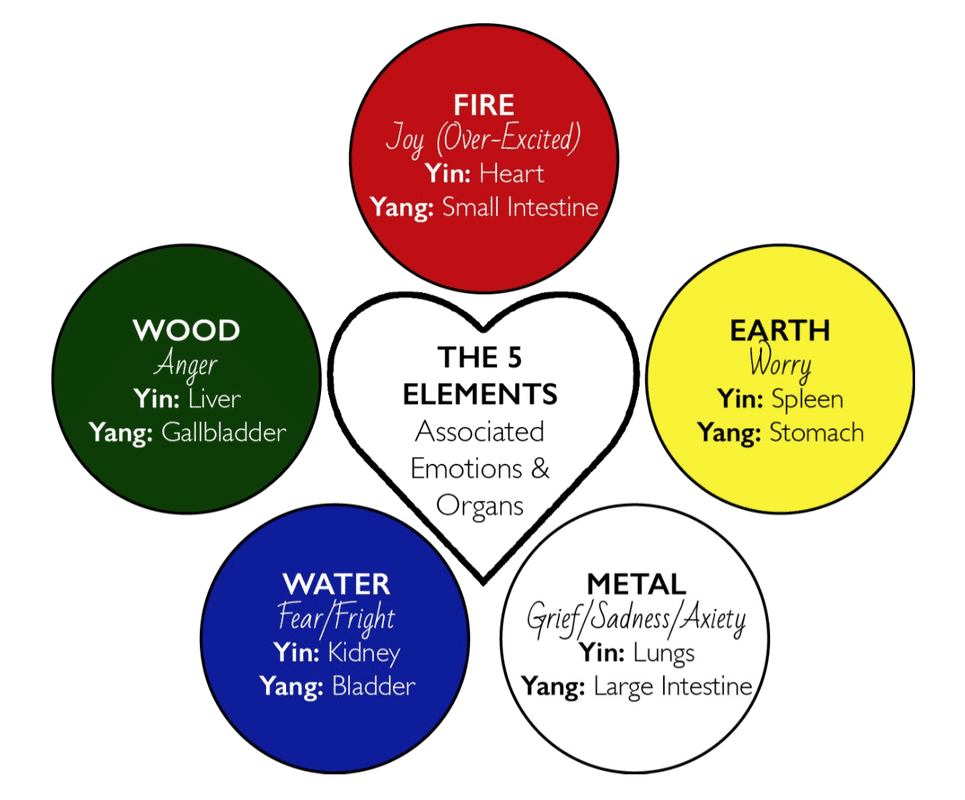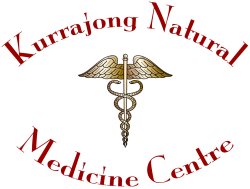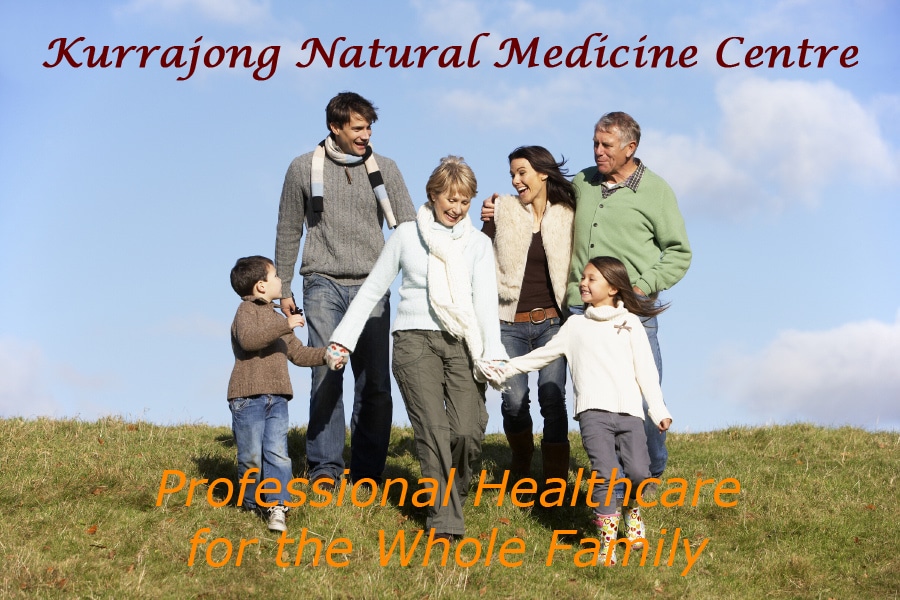Post Traumatic Stress Disorder (PTSD) - A Chinese Medicine Perspective
What is Post Traumatic Stress Disorder (PTSD)?
PTSD is a debilitating mental disorder that can form following exposure to a traumatic event [1] such as a natural disaster, a serious accident, a terrorist act, war/combat, or rape or who have been threatened with death, sexual violence or serious injury. PTSD is often comorbid with depression and other anxiety disorders.
The American Psychiatric Association states that symptoms of PTSD fall into four categories, and specific symptoms can vary in severity.
Intrusion: Intrusive thoughts such as repeated, involuntary memories; distressing dreams; or flashbacks of the traumatic event. Flashbacks may be so vivid that people feel they are re-living the traumatic experience or seeing it before their eyes.
Avoidance: Avoiding reminders of the traumatic event may include avoiding people, places, activities, objects and situations that may trigger distressing memories. People may try to avoid remembering or thinking about the traumatic event. They may resist talking about what happened or how they feel about it.
Avoidance symptoms Include:
- Staying away from places, events, or objects that are reminders of the experience
- Avoiding thoughts or feelings related to the traumatic event
Avoidance symptoms may cause people to change their routines. For example, after a serious car accident, a person suffering from post traumatic stress disorder may avoid driving or riding in a car.

Alterations in cognition and mood: Inability to remember important aspects of the traumatic event, negative thoughts and feelings leading to ongoing and distorted beliefs about oneself or others (e.g., “I am bad,” “No one can be trusted”); distorted thoughts about the cause or consequences of the event leading to wrongly blaming self or other; ongoing fear, horror, anger, guilt or shame; much less interest in activities previously enjoyed; feeling detached or estranged from others; or being unable to experience positive emotions (a void of happiness or satisfaction).
Alterations in arousal and reactivity: Arousal and reactive symptoms may include: being irritable and having angry outbursts; behaving recklessly or in a self-destructive way; being overly watchful of one’s surroundings in a suspecting way; being easily startled; or having problems concentrating or sleeping.
Arousal and reactivity symptoms include:
- Being easily startled
- Feeling tense, on guard, or “on edge”
- Having difficulty concentrating
- Having difficulty falling asleep or staying asleep
- Feeling irritable and having angry or aggressive outbursts
- Engaging in risky, reckless, or destructive behaviour.
Arousal symptoms are often present—they can lead to feelings of stress and anger and may interfere with parts of daily life, such as sleeping, eating, or concentrating.
How Does Traditional Chinese Medicine View PTSD
Strong emotional responses to an event such as anger, sadness, fear, etc. can cause imbalance of the energy flow through the body and adversely affect one or more of the organs.
From a Chinese medical perspective the primary diagnostic patterns for PTSD are:
- Heart Shen (spirit) disturbance
- Liver Qi (energy) stagnation
- Kidney deficiency.
The following secondary patterns are:
- Liver Qi stagnation – Wood-Earth Disharmony
- Liver Fire
- Phlegm Fire
- Phlegm-Damp
- Heart Fire
- Xu (deficiency) of: Heart, Kidney, and Spleen [3].
Studies have shown Acupuncture to be a safe, effecting and potentially non-stigmatising treatment that reduces symptoms of anxiety, depression, and chronic pain [2].
At Kurrajong Natural Medicine Centre our team of highly qualified and experienced practitioners are ready to help develop an individualised treatment programme with you. Simply call (02) 4573 0894

In Traditional Chinese Medicine (TCM) each of the elements represents organs and their associated emotional components. That is the Liver, for example, is associated the the element of WOOD and it’s associated emotion is ANGER.
What You Can Do to Help Yourself if You Suffer from Post Traumatic Stress Disorder (PTSD)
It is important to know that, although it may take some time, you can get better with treatment. Here are some things you can do to help yourself if you’re suffering from PTSD:
- Talk with your health care provider about treatment options, and follow your treatment plan.
- Acupuncture and Chinese herbal medicine
- Engage in exercise such as Yoga, Tai Qi or Qi Gong, mindfulness/meditation, and other activities that help reduce stress, for example gardening.
- Try to maintain routines for meals, exercise, and sleep.
- Set realistic goals and do what you can as you are able.
- Spend time with trusted friends or relatives, and tell them about things that may trigger symptoms.
- Expect your symptoms to improve gradually, not immediately.
- Avoid use of alcohol or drugs.
References
1. Oh, J. Y., Kim, Y. K., Kim, S. N., Lee, B., Jang, J. H., Kwon, S., & Park, H. J. (2018). Acupuncture modulates stress response by the mTOR signalling pathway in a rat post-traumatic stress disorder model. Scientific reports, 8(1), 11864. https://doi.org/10.1038/s41598-018-30337-5
2. Sinclair-Lian, N., Hollifield, M., Menache, M., Warner, T., Viscaya, J., & Hammerschlag, R. (2006). Developing a traditional chinese medicine diagnostic structure for post-traumatic stress disorder. Journal of alternative and complementary medicine (New York, N.Y.), 12(1), 45–57. https://doi.org/10.1089/acm.2006.12.45
3. Engel, C. C., Cordova, E. H., Benedek, D. M., Liu, X., Gore, K. L., Goertz, C., Freed, M. C., Crawford, C., Jonas, W. B., & Ursano, R. J. (2014). Randomized effectiveness trial of a brief course of acupuncture for posttraumatic stress disorder. Medical care, 52(12 Suppl 5), S57–S64. https://doi.org/10.1097/MLR.0000000000000237
Disclaimer
Disclaimer information for users of the Kurrajong Natural Medicine Centre, Namaste Yoga Kurrajong and The Herbal Health Coach website.
Page last updated: 26th June 2023
Information provided for education and research information only
The information on this website is presented by Kurrajong Natural Medicine Centre for the purpose of disseminating health information free of charge for the benefit of the public.
While Kurrajong Natural Medicine Centre has exercised due care in ensuring the accuracy of the material contained on this website, the information on the site is made available on the basis that Kurrajong Natural Medicine Centre is not providing professional advice on a particular matter.
This website is not a substitute for independent professional advice. Nothing contained in this site is intended to be used as medical advice and it is not intended to be used to diagnose, treat, cure or prevent any disease, nor should it be used for therapeutic purposes or as a substitute for your own health professional’s advice.
Kurrajong Natural Medicine Centre does not accept any liability for any injury, loss or damage incurred by use of or reliance on the information provided on this website.
Quality of information
Kurrajong Natural Medicine Centre makes every effort to ensure the quality of the information available on this website and updates the information regularly. Before relying on the information on this site, however, users should carefully evaluate its accuracy, currency, completeness and relevance for their purposes, and should obtain any appropriate professional advice relevant to their particular circumstances. Kurrajong Natural Medicine Centre cannot guarantee and assumes no legal liability or responsibility for the accuracy, currency, completeness or interpretation of the information.
The material may include the views or recommendations of third parties and does not necessarily reflect the views of Kurrajong Natural Medicine Centre or indicate a commitment to a particular course of action.
Links to other websites
This website contains links to other websites which are external to Kurrajong Natural Medicine Centre. Kurrajong Natural Medicine Centre takes reasonable care in selecting linking websites but Kurrajong Natural Medicine Centre accepts no responsibility for material contained in a website that is linked to this site. It is the responsibility of the user to make their own decisions about the accuracy, currency, reliability and correctness of information contained in linked external websites.
Links to external websites are provided for the user’s convenience and do not constitute an endorsement or a recommendation of any third party products or services offered by virtue of any information, material or content linked from or to this site. Users of links provided by this site are responsible for being aware of which organisation is hosting the site they visit.
Views or recommendations provided in linked sites may include the views or recommendations of third parties and do not necessarily reflect those of Kurrajong Natural Medicine Centre or indicate a commitment to a particular course of action. .



